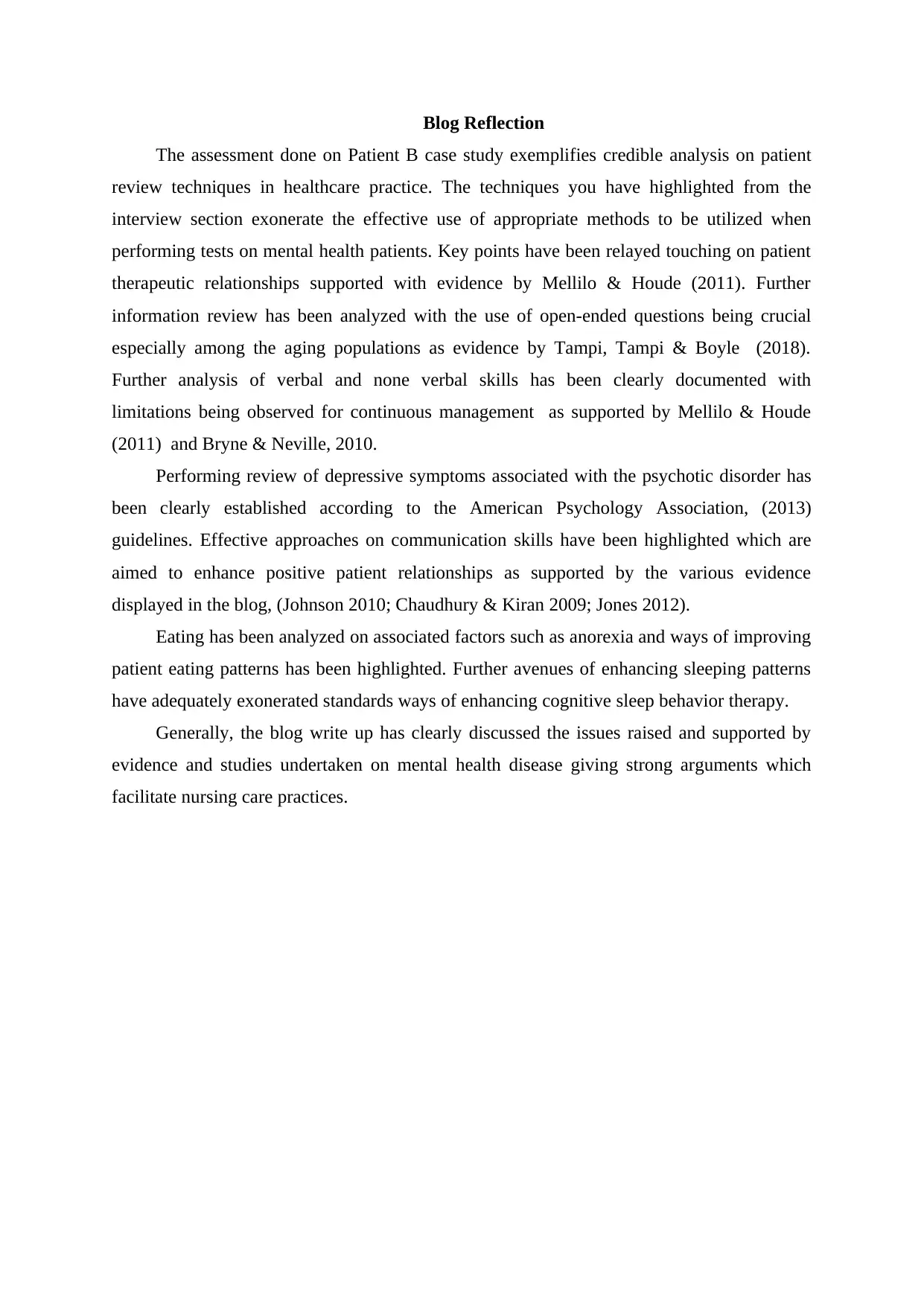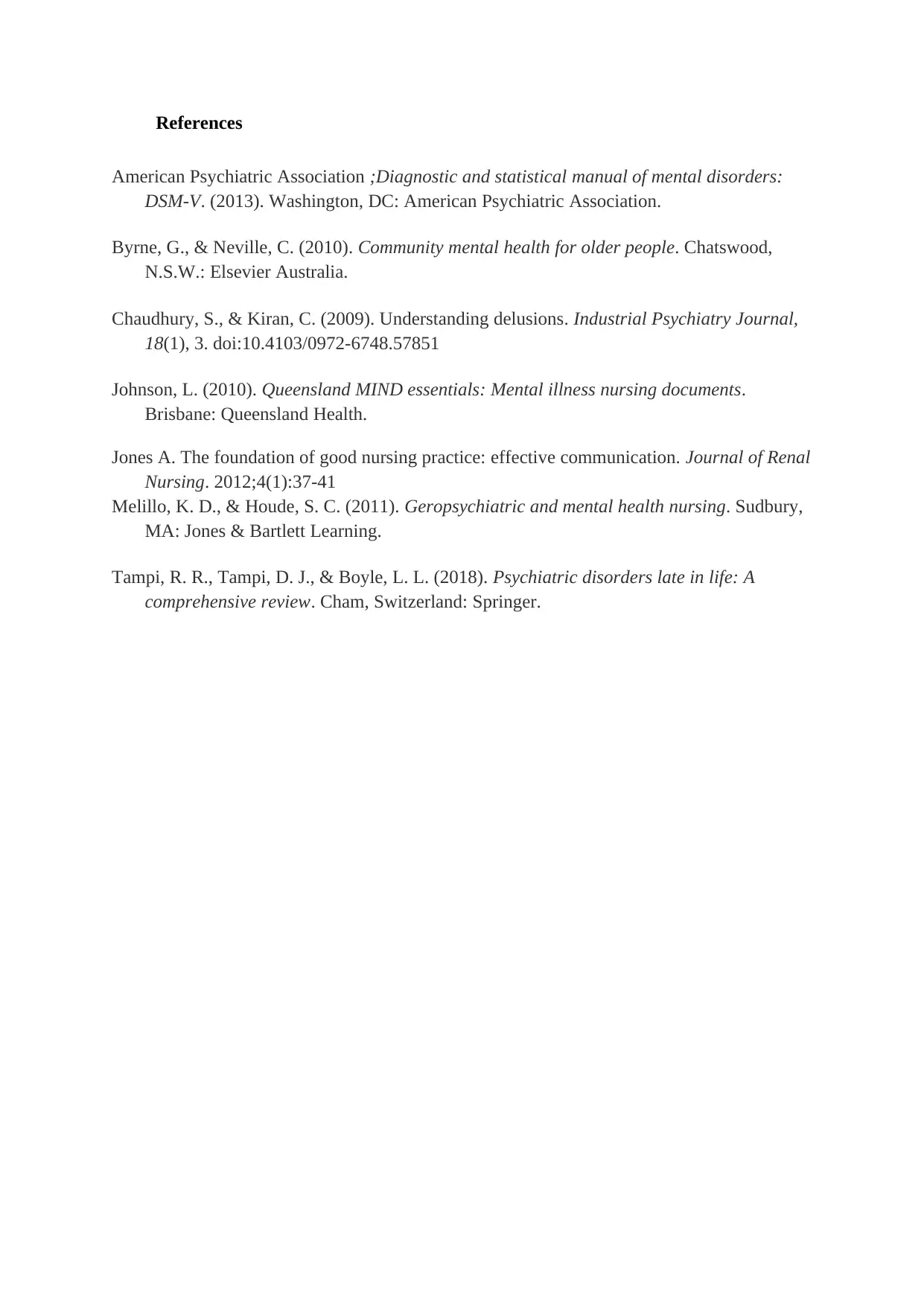Analysis of Patient B Case Study in Mental Health Nursing
VerifiedAdded on 2021/10/28
|2
|461
|75
Report
AI Summary
The report provides an analysis of Patient B's case study focusing on mental health nursing. It examines the use of effective techniques when performing tests on mental health patients, highlighting the importance of therapeutic relationships, communication skills, and the assessment of depressive symptoms. The report references relevant literature and guidelines, including the Diagnostic and Statistical Manual of Mental Disorders (DSM-V). It also explores the impact of eating and sleeping patterns on mental health, and it discusses strategies to improve patient outcomes through cognitive sleep behavior therapy and improved eating habits. Overall, the analysis emphasizes the importance of evidence-based practices in mental health care, offering insights into the complexities of patient care and treatment.
1 out of 2






![[object Object]](/_next/static/media/star-bottom.7253800d.svg)